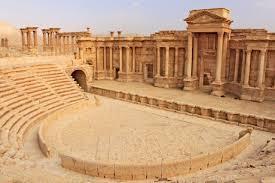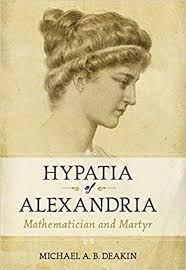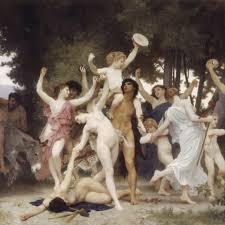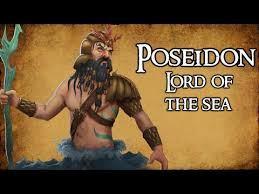 Hans-Friedrich Mueller is Professor of Ancient and Modern Languages at Union College. I heard (twice!) a talk he gave, based on a book by Catherine Nixey titled The Darkening Age — the Christian Destruction of the Classical World.
Hans-Friedrich Mueller is Professor of Ancient and Modern Languages at Union College. I heard (twice!) a talk he gave, based on a book by Catherine Nixey titled The Darkening Age — the Christian Destruction of the Classical World.
Nixey was brought up in a religious environment, and got the traditional “sunday school” story of Christian monks preserving, through the Dark Ages, the writings of the ancient world. She was shocked to find out that in fact such preservation was almost accidental and was overwhelmed by a much bigger tale of destruction and suppression. Her aim in writing was to present this other “untold” side of the story.
The religion of the ancient Greeks and Romans was what we call “pagan,” with a pantheon of deities like Zeus and Athena (Jupiter and Minerva to the Romans). Actually the word “pagan” was a Christian coinage intended to be derogatory; it derived from “pagus,” meaning “countryside.” Hence a religion of country bumpkins.
The change came when the Roman Emperor Constantine I (ruled 307-337 AD) converted to Christianity, making it now the state religion. But Professor Mueller observed that it’s actually hard to convince people to change their religion. He pointed to conflict in his own family concerning his marriage, involving two kinds of Christianity; and of course between paganism and Christianity there is a far bigger gulf. The conversion was accordingly achieved by much violence and repression.

In an unmistakeable reprise of this past, Palmyra’s ancient monuments were again ravaged, in 2016, by ISIS, with a quite similar religious impetus.

Meantime, however, we’ve all been told how Christians themselves had suffered persecution in prior centuries. This is part of the mythology Nixie sought to debunk. While the Romans did require everyone to partake in some pagan rituals, and executed refusers, this wasn’t a big thing. Mueller quotes a letter from the Emperor Trajan (98-116 AD) to a Roman governor, embodying a kind of “Don’t ask, don’t tell” policy. The Roman state practiced a whole lot more religious tolerance before Constantine’s conversion than afterward, with persecution of pagans far more severe than what Christians had experienced. Indeed, Christians persecuted each other far more, over doctrinal disputes.

The ancients more generally took religion less seriously, tending to view their gods as being merely symbological or metaphors.

The degree of violence and social upheaval experienced in past civilizations, as depicted in Professor Mueller’s talk, was actually pretty typical throughout human history. Our own societal dispensation, with its separation of church and state, ethos of tolerance, and constraints upon violence and other forms of governmental power, is something not to be taken for granted. Yet there are fools today actually trying to tear this down.

